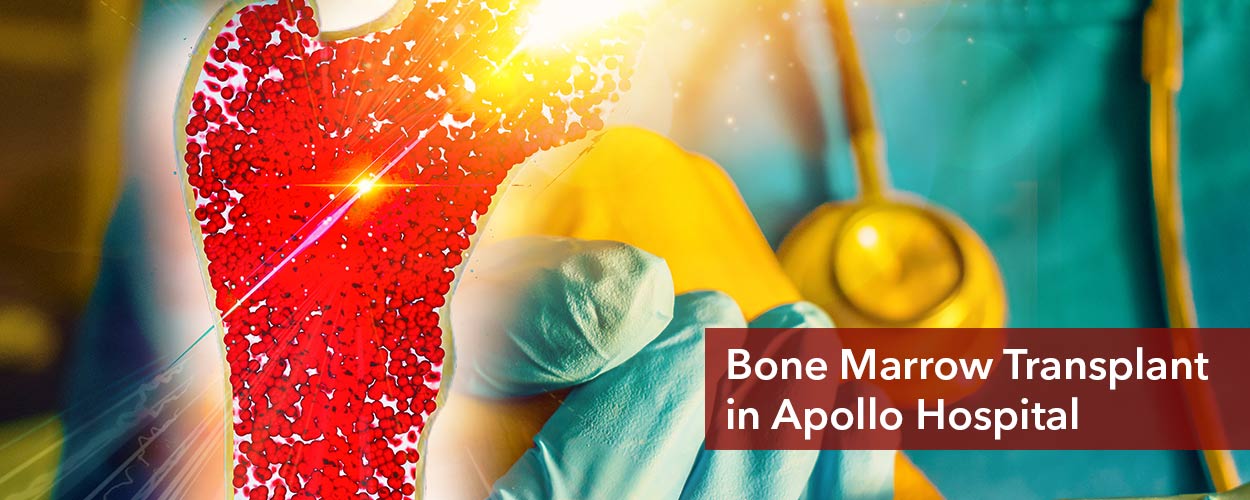Bone Marrow Transplant in Apollo
Apollo Hospitals, one of India’s foremost healthcare groups, is highly known for the high quality of medical care services and facilities it provides. The chain of hospitals spreads all across several major cities, includes top hospitals in India such as Indraprastha Apollo Hospital, Delhi, and Apollo Hospital Chennai, among many others.
The bone marrow transplant at Apollo hospital is one of the best programs in the entire country. The hospital has a specialized department and units completely dedicated to BMT patients. There is a team of trained doctors and nurses specializing in the field of hematology. They are committed to providing personalized and compassionate care to all the patients.
Bone marrow transplants in India have a very high success rate and a low complication rate, attributed to the standard of safety and clinical excellence offered by the hospitals. The medical procedure is carried out in state-of-the-art facilities with stringent pre-and post-operative protocols, limiting the risk of infections and other complications. For cancer patients, a multidisciplinary team of specialists is involved in planning the treatment and care.
Click here to look at the Best Bone Marrow transplant hospitals in India.
The blood and marrow transplant center at Apollo Hospitals has a record of performing more than 1500 transplants with excellent clinical outcomes. Apollo Hospitals, India is a trusted name for international patients, as it receives patients from all over the world. The international patient department at the hospital guides and aids the patient and their family throughout the journey of their treatment, starting from planning the travel and during the procedure, to aftercare and follow-ups.
To know more about Apollo Hospital Bone Marrow Transplant and receive a detailed treatment plan with cost estimates, share your medical reports with us at care@lyfboat.com. Lyfboat strives to help and guide patients to receive the best quality treatment and medical services. We provide a range of services for international patients, including airport pick up/drop off, visa assistance, arranging accommodation, language translators, and many more.
Bone Marrow Transplant Cost in Apollo Hospital
The treatment packages offered by Indian hospitals are relatively lower than the price for the same treatment in various other countries, owing to many factors. The average bone marrow transplant cost in Apollo hospital is very affordable, starting from as low as USD 15000 (Autologous Bone Marrow Transplant for certain diseases) and range up to USD 35,000 and more, depending on the type of transplant and medical condition of the patient.
An international patient from countries such as the USA, UK, or other European countries may save 40-60% on the overall treatment cost by having their transplant surgery in India, instead of their home country. The affordability of bone marrow transplantation cost in Apollo Chennai makes it a highly favorable choice for many international patients from Bangladesh, UAE, and many other countries.



